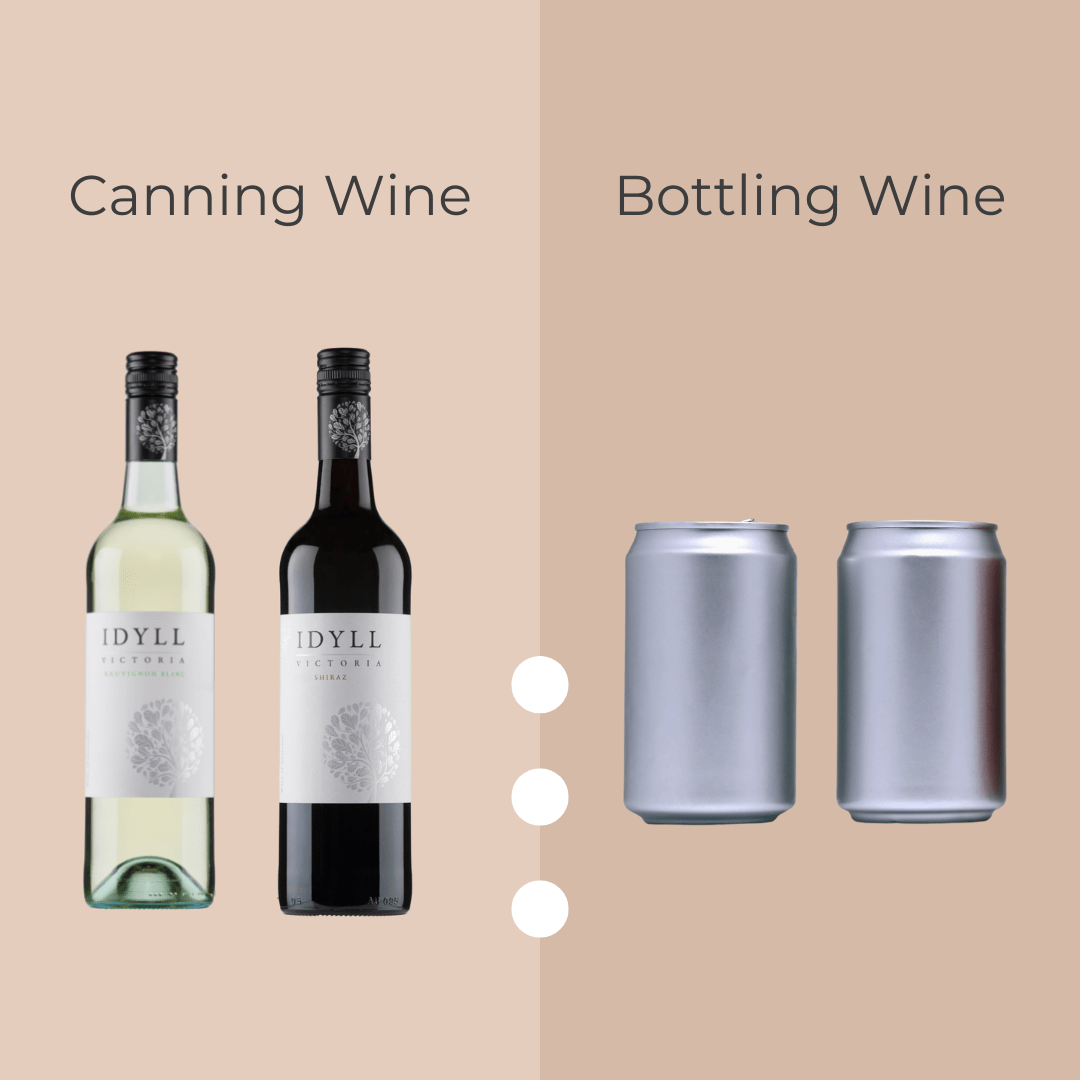Canning wine and bottling wine. How do they differ?
Canning wine is a trend that has gathered momentum in recent years. Common varieties that are canned are sparkling, rose, Moscato, Pinot Grigio and Sauvignon Blanc. Some red wines have been canned, however the proportion is in favour of white and sparkling wines. We discuss the differences in canning wines compared to bottling wines below.
Raw materials:
When canning wine instead of bottling it, there are different dry goods and raw materials required. When canning wine, a can is required which may be either printed or labelled. If a labelled can is chosen, then a label is required which is applied during the canning wine process. A 4, 6 or 10 pack cardboard wrap is utilised to bundle the cans together, alongside a carton to hold 16, 24 or 30 cans. When canning wine and a full pallet is produced, there is also a cardboard pallet lid attached to the top of the full pallet which aims to reduce damage during transport when the ratchet tie down is secured. Whilst cases of glass bottled wine may contain cardboard dividers to limit the rattling of bottles, this is not utilised when canning wine.
QA checks:
When bottling wine a number of QA checks are completed on both the liquid and the finished product. Here at IDL we check the label and that it has been applied in the correct position, the correct screwcap has been applied, the ink jet printing on both the bottle and the carton is correct and has been applied. The only additional QA check that’s completed when canning wine is a seam check to ensure the lid has been applied correctly to the can. This ensures the can doesn’t leak and no oxygen can enter the can. Instead of ink jetting printing the bottom of the bottle with lot number and best before information, this is printed on the base of the can when canning wine.
What wines can be canned?
It is recommended that when canning wines, wines that should be consumed young are best. Canned wines won’t age the same way they will in a bottle because no small amounts of oxygen can enter the can, which is what a cork allows to happen. Canned wines are wines that should be enjoyed in the short term, and it’s not recommended to cellar wines in a can.
What are the benefits of canning wine?
One large benefit of canning wine is the sustainability aspect. Aluminum cans are infinitely recyclable, unlike glass bottles. Cans can also be part of Australian state and territory container deposit schemes for 10c refunds, whilst standard 750ml wine bottles cannot.
IDL are capable of both bottling and canning wine. Learn more about our contract canning capabilities, or contact us today to get in touch.
See also: Manufacturing of Wine, how to simplify, Benefits of Engaging a Canning Contract Company

